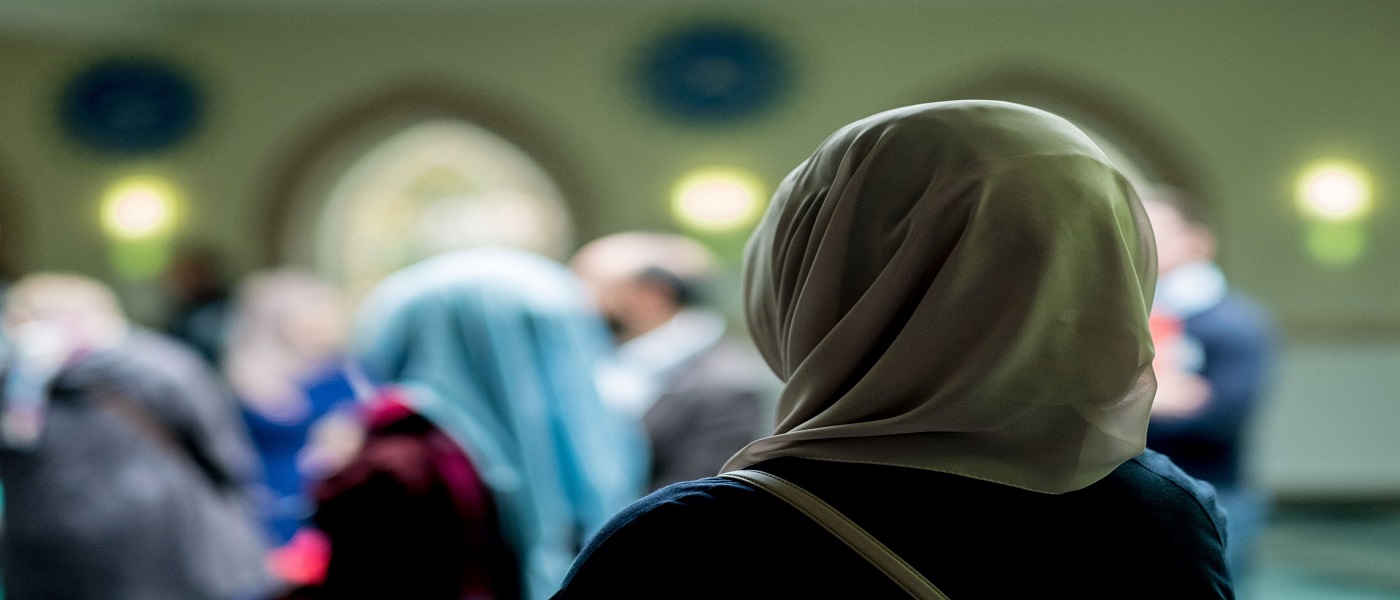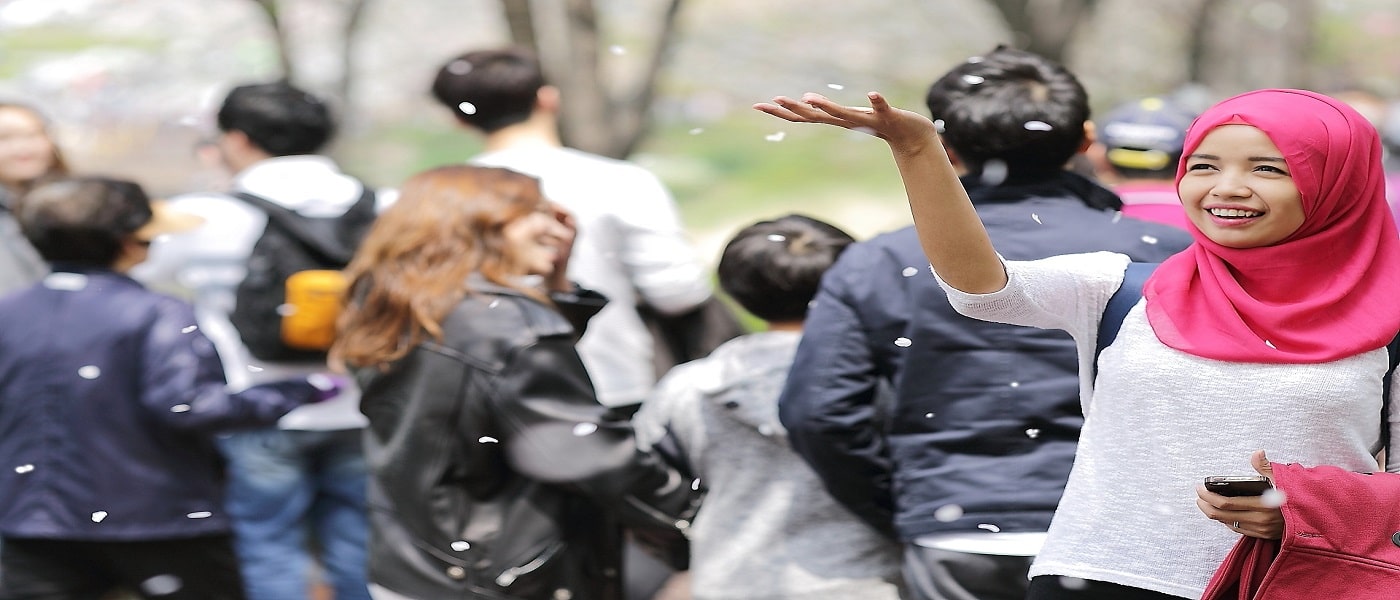

Five Misconceptions about Muslim women
I am a Muslim woman. I grew up in an Islamic country. I went to segregated schools, sports clubs, swimming pools, friendly parties, and wedding parties. Then I chose Media as my career. I worked in different journals, made films, and traveled to various cities and countries, with or without my family.
As a Muslim who believes in modesty and follows the rules of Islam, my Islamic country is an outstanding place. However, I did not realize that, until I had to leave my country. I lived in Europe for several years. I had heard that the west is where the dreams of freedom come true. But after a short while, I found myself imprisoned in Europe.
I am a table tennis trainer, a good swimmer, a good basketballer, and relatively professional in many sports. In my Islamic country, I used to go to women’s sports clubs or women’s swimming pools after school since childhood. But years ago in Europe, I could not find any sports clubs that were segregated from men, so I could wear my comfortable sports set and play my favorite sports. Because there were men everywhere, and I wanted to keep my modesty, besides my Hijab.
Then a few Muslims came together and decided to rent a sports club for a few hours over the weekend. It sounded awesome, but when we went to that sports club that we had hired for women only, I realized that European Muslims who were born and raised in European countries were mostly very weak in sports.
Basically because since childhood they did not have access to segregated sports clubs to learn and practice any sports. And of course, my problem was that I could not find anyone to play professionally with and enjoy playing! Therefore for as long as I lived in Europe I felt imprisoned.
And when I returned to my Islamic country, I was so thankful that I had sports clubs (where we have our athletic competitions), gyms, swimming pools, spas, and even women-only parks! where we could enjoy running without a scarf or taking a sunbath, and not worry that we are doing anything against God’s will or orders.
Talking too much about my memories of a Muslim woman was all for the goal to discuss a few misconceptions about being a Muslim woman and deprived of social rights.
1. Muslim Women Cannot Educate!
Well! What should I say? This article is being written by an educated practicing Muslim woman who is now educating other Muslim and non-Muslim women.
We have narrations from our beloved prophet (PBUH&HP) that encourage us to learn until death; “Gain knowledge traveling” [1] or “Gain knowledge even if it is in China.” [2], which emphasizes the importance of gaining knowledge during one’s lifetime, even if one has to travel far distances and learn the knowledge from non-Muslims.
Also in another narration, our prophet (PBUH&HP) makes it an obligation to learn, and not only an obligatory for men, but he emphasizes that it is also a lifetime and necessary for women to be knowledgeable; “Gaining knowledge is an obligation upon all Muslim men and women” [3].
We also read in the history that the prophet’s (PBUH&HP) daughter and granddaughters were excellent teachers and used to teach women of their era.
The only issue that is raised about women’s education is being in mixed classes and groups with male students. In such situations, it is not women’s education that is forbidden (Haram), but like any other situation of mixed gatherings (men and women), people should be wary of their relationships.
Women should avoid flirting and chatting about different issues with men if it is not necessary. The relationship between students of the opposite sex is lawful (Halal) as long as there is no intention for pleasure. [4]
"Dalia Mogahed was the US’ first Muslim woman in the White House back in 2009 and one of Barack Obama’s ‘closest advisors’"
2. They Cannot Be Engaged in Political Activities!
In Islam some duties that are obligatory for men, such as defending the borders of their country if it is attacked, or working outside the house to earn money for a living. But making it compulsory for men, never means that it is forbidden for women.
“Islam views women as masters of the family and emphasizes that the family environment must become a safe, dignified and tranquil one for women so that they could do their best in fulfilling their main task which is to care for the family .” That is the reason for which there is no force on women to work and bring money for the family. [5].
And that, in fact, is the most important social activity in itself. However, if a woman would like to participate in different social and political activities, besides her role as a wife or a mother, there are no objections towards it. Muslim women have no essential duties in their homes such as cooking or cleaning or sewing, etc. unless they wish to do it themselves. Otherwise, the husband could hire a servant to do the house works.
Nevertheless, the fact that women are less active in political activities comes down to their feminine nature. Imam Ali (AS) says: “woman is like a fragrant flower, and not a champion” [6], which means she should not be expected to do tasks that are beyond her capabilities. But it does not mean that she cannot choose to do things that may naturally be against her nature.
Also, some women may not choose to do manly tasks. However, at some point, they have no choice but to do so. For example, it is narrated that at the time of Imam Ali (AS), Lady Fatima (AS) went to the mosque and performed speeches. Or after the event of Ashura, Lady Zainab (AS) took on her shoulders the responsibility that was even hard for a few strong men and performed political speeches in different places.
3. They Cannot Drive!!!
There are plenty of issues that are forbidden in Islamic countries, either for men or women, which are not related to the Islamic law but go back to the old cultures and traditions of those nations. For example, wearing a veil for Muslim women, or preventing women from education, etc. are all amongst those old cultures.
However, many of them have been mixed up with the Islamic law, and people regard them as religious matters instead of social conventions. But we have to be clever enough, to distinguish between the Islamic law and old traditions of different nations. The same way that Muslims do not relate mistakes of “so-called” Christians to the religion of Christianity.
Driving is forbidden for women in very few countries, and there is no firm Islamic ruling to support it.
In fact driving in today’s world, makes traveling safer for women and there is no rational opinion against it.
4. They Cannot Play Sports!
There are many narrations from our Prophet (PBUH) that encourage people to do sports that are common in their time such as swimming, horse riding, and archery, and in those narrations, women were never excluded. In fact, no reference shows sports to be forbidden (Haram) for Muslim women. But in this case, again it is the issue of modesty and Hijab that should be observed.
Regarding sports that are forbidden (Haram), there is no difference between men and women. Sports that are connected to gambling or may harm the player are forbidden (Haram) for both men and women.
5. They Cannot Have Fun!
There is no problem for women having fun if they do not commit a sinful act; and again, there is no difference in this between men and women. The only point for women is that they should consider keeping their hijab and modesty (Haya) and do not join activities that may harm their chastity. You can read about forbidden (Haram) and lawful (Halal) fun in Islam in related articles.
Reference:
- Wasa’el al-Shi’a, vol. 27, p. 27
- Dailami, Irshad al-Quloub ila- al-sawa, vol. 1, p. 165
- Amali Al-Sadouq, p. 419.
- muslim women
- women in islam
- Ghurar al-Hikam & Durar al-Kalem, p. 759
Share This Article

Is Islam Fair to Both Men and Women?
Contrary to popular belief, women in Islam has been empowered and respected. An excellent example of that is the first Muslim woman, Khadijah, Prophet Muhammad’s (PBUH) wife, whose influence and support was crucial to the success of Islam. Through many articles, we have discussed the Islamic view on women, their social position, their rights and responsibilities, and the rulings and regulations concerning women. Considering all those details, we will see here how fair Islam is to women in comparison to men.
Equal or the Same Rights for Men and Women in Islam?
It is clear that men and women are different from each other in many aspects. They are physically and biologically different. Their emotional and spiritual specifications are not the same. This means that men and women are of distinct capacities, which implies that they should be charged with different responsibilities regarding their innate capabilities. And since the rights of each individual depend on the burden of responsibility that he\she takes on, women in Islam and men won’t have “the same” rights. However, this does not mean that they do not have “equal” rights, either.
Let’s consider an example; a father who would like to leave his children an inheritance. He has a farm, a piece of land and a business company. These three possessions are of equal value, but they are not alike. The father knows his children’s characteristics, talents and interests very well. He, therefore, gives each child one of his belongings based on his knowledge of their potentials. This is an example to demonstrate that, although what every child receives from the father is not the same as the others, they are worth equally. So, the father has divided the inheritance equally among the children.
This is also true about the rights of women and men. As an example, although women might work and earn money, supplying for the family is not at all a responsibility for women; neither is defending Islam and country in case of war. Hence, women are given some rights in certain conditions where men are not given. Moreover, Islam has prevented imposing harsh and heavy tasks on women, as they are known to be as delicate as a flower [2]. It can be concluded that women and men do not have “the same” rights because of having different talents, potentials, and biological features, but their rights are “equal”.
Are Men Superior to Women in Islam?
According to the Quran, “Men are the managers of women” (4:34); but this does not imply that men are superior to women in Islam. Firstly, it should be noted that this verse is only about wives and husbands and not women and men in general. Secondly, being the manager here means having the “responsibility” of the family. Family like every social unit requires a supervisor or manager. Being physically stronger than women to protect the family against risks and to carry out heavy works, and being less affected by the emotions, men have been given the duty of protecting and managing the family affairs. In this regard, men have been assigned the heavy responsibility of providing for the family needs from which women are exempted.
From another side, from the Islamic point of view, women and men are of the same spirit, the whole world is created to serve both of them, they both can reach the spiritual excellence, and women can attain the superior social status they deserve [2]. All these demonstrate that men have not been given any more privilege compared to women, but have been charged with a different responsibility.
From what has been discussed above, we can see that the Islamic regulations consider both women and men, and the rights of both are equal as it should be but not necessarily similar in every circumstance.
References:
- “Nahj al-Balaqa”, Letter 31.
Read More

Muslim Women in Society
Social life is one of the most important aspects of human life. From the beginning of the creation of humankind, people decided to live together in order to meet their needs. In this issue, the quality of women’s social participation is one of the fundamental concerns in every culture. let's see about Muslim Women in Society.
Islamic Standards for Muslim Women in society
One of the most notable points in considering this subject in Islam is the condition of Muslim women’s social participation. Muslim women and men are supposed to appear in society equitably. Muslim women just like men have the right to vote, to educate, to teach, to glitter in high political, scientific, athletic states, etc.
Islamic society is a place where no one is known and respected for his/her gender but for his/her virtues and morality. Gender should not be the first outward appearance of one’s personality. In this way, if a Muslim woman cooperates as a teacher, doctor, worker, etc. no one is allowed to consider her sex; rather people are supposed to pay attention to her occupation and knowledge.
In fact, all of us are human beings in society, not women and men. For reaching this utopia, everybody has some duties. God tells us not to underline sexual beauties and also not to look at and search for them. A safe society must make our minds free for more important activities. Such superficial challenges decrease our mental power.
Hijab: A Way of Revealing the Inner Beauty
In this regard women also have their own responsibilities. Islam wants women to have a safe and respectful position in society. This is one of the reasons why Islam asks people especially women to cover their bodies and not to show off their beauties.
That is because no one should look at a Muslim woman as a sexually beneficial object. God in the Holy Quran says: “O Prophet! Tell your wives and your daughters and the women of the faithful to draw closely over themselves their chadors [when going out]. That makes it likely for them to be recognized and not be troubled, and Allah is all-forgiving, all-merciful” (33:59).
It means that this beauty is so valuable that must not be seen or touched freely. But the main point is that there is another beauty which is more important and more valuable than this one, and that is the beauty of our personality, which can affect our appearance. Women must be known by their thoughts; God does not want women, these delightful, beautiful, and also powerful creatures to be just spectacular scenery for men. So, if women wear Hijab people will pay more attention to their inner beauties.
Hijab and Social Activity
By ordering Hijab, Allah is not to say Muslim women must stay at home because Hijab is social apparel, not a domestic dressing. It means women can take part in social activities. Nobody is permitted to have an offensive look at a woman as a sexual object but as a precious and respectful citizen.
There is no contradiction between progression and touching advanced states and wearing Hijab. The thing that Islam limits are the irregular, unconditional, and dishonorable relationship between women and men, the limitation of sensuality.
Hijab and Instinctual Pleasures
Allah has created sexual desire, and it is our natural disposition to satisfy it. Also, Allah has not prevented Muslims from joys. We as humans must legalize our pleasures. This natural instinct is to satisfy by marriage and with our spouse, not anyone else. Women are not born for being enjoyable and admirable for all men.
This attitude is extremely cruel toward women, and if a woman is not sexually attractive, she becomes worthless to society. In short, Islam always emphasizes the freedom of mind and the pleasure of heart in society rather than the freedom of sensuality and misuse of feminine sex appeal. On the other hand, this perfect religion has not ignored human instinctual pleasures, rather it has recommended us to fulfill them in a controlled and morally and legally acceptable way.
Read More

